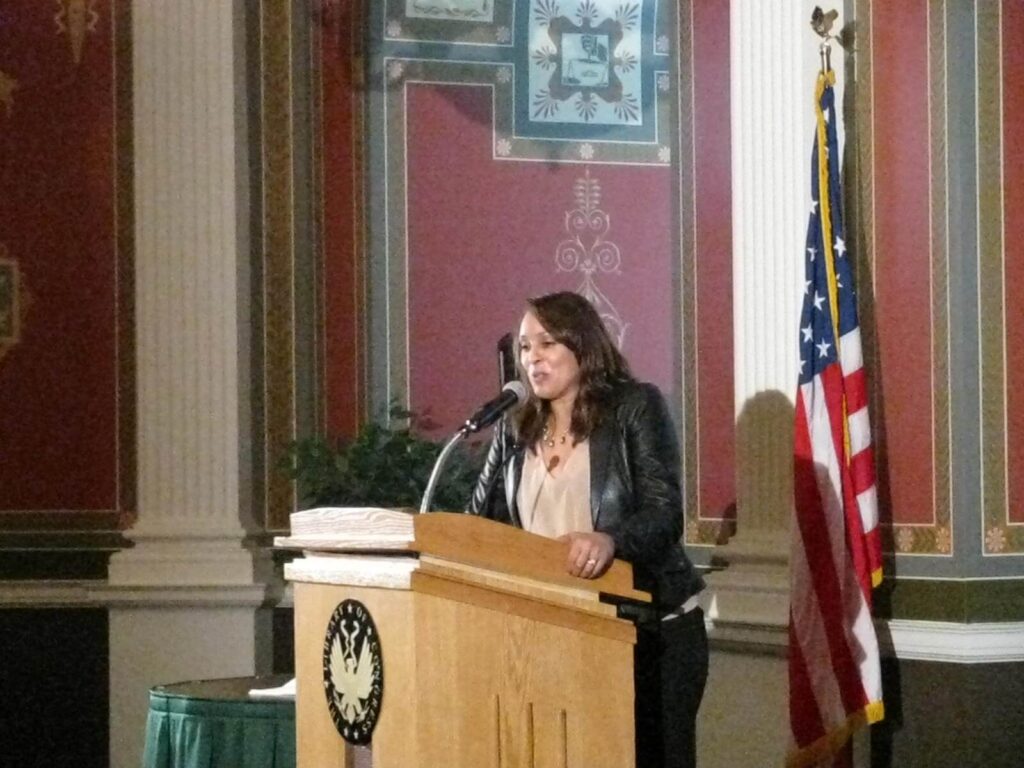by The Cowl Editor on November 16, 2017
Campus

by Hannah Paxton ’19
Assistant Opinion Editor
“Poets are the unacknowledged legislators of the world,” said Jane Lunin Perel, a professor emeritus of creative writing at Providence College, quoting English poet Percy Bysshe Shelley at the College’s second annual Poetry and Fiction Series. Pulitzer Prize winner Natasha Trethewey embodied this ideal as this year’s featured poet, detailing the experiences of a young girl growing up in a biracial family and the concerns of the African American working class.
When we think of poetry, traditional writers such as Percy Bysshe Shelley, Lord Byron, and Robert Frost come to mind, all of whom are associated with poetry written on themes of nature and romance.
But today there is an expanded understanding of what is considered poetry. Modern-day poets like Trethewey expand the definition of poetry, speaking from true experience and giving voice to marginalized communities.
Trethewey has a unique background—she grew up with a black mother and white father who married illegally at the time, and later divorced when she was only six years old.
The poems she read from her collection last Thursday, November 9, speak not only to her own childhood naiveté but the pain and strife her mother underwent in an abusive second marriage that eventually led to her untimely death.
The power of Trethewey’s poetry is that she does not simply tell the story of her past, but evokes feelings of innocence, sadness, frustration, and loss.
For that reason, the audience of students, faculty, and visitors were able to experience Trethewey’s journey with her from childhood to the hour that she spoke.
After losing both her parents, Trethewey chose to channel her emotions through poetry, demonstrating the curative influence of writing. What spoken words cannot explain, written art can express.
Poetry does not only heal; it also unifies. Trethewey once said, “Poetry’s a thing that belongs to everyone,” and it is one of the few things that does. Without it, many voices are silenced and stories are never told. Poetry has a way of destroying boundaries between people as well as opening minds instead of closing them.
Regardless of political, religious, or personal beliefs, poetry is one of the few mediums where everyone can connect on an emotional level. Poetry is a way of alleviating pain while also embracing it. It is a way of leaving the past behind without forgetting it entirely.
When poems are written they are no longer a private thought locked away, but a weight that is shared with everyone who listens to or reads them.
Poets like Trethewey are able to take an experience that is grim and unthinkable and transform it into something positive and enlightening.
While they are not rare, narratives like hers often go unheard, which is why it is so important that we not only listen to her story, but actively engage with it as well.
In a world where many people’s ideas are repressed in most media outlets, Trethewey’s poetry allows for countless voices to be brought to light and heard.